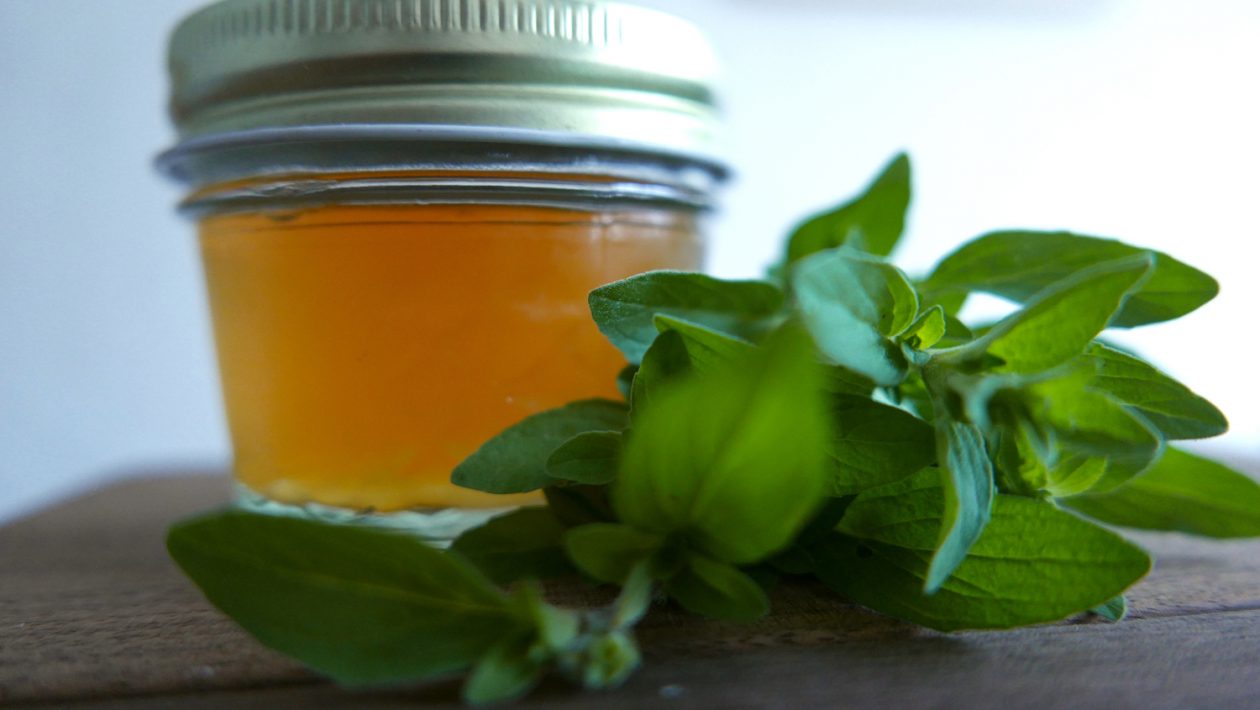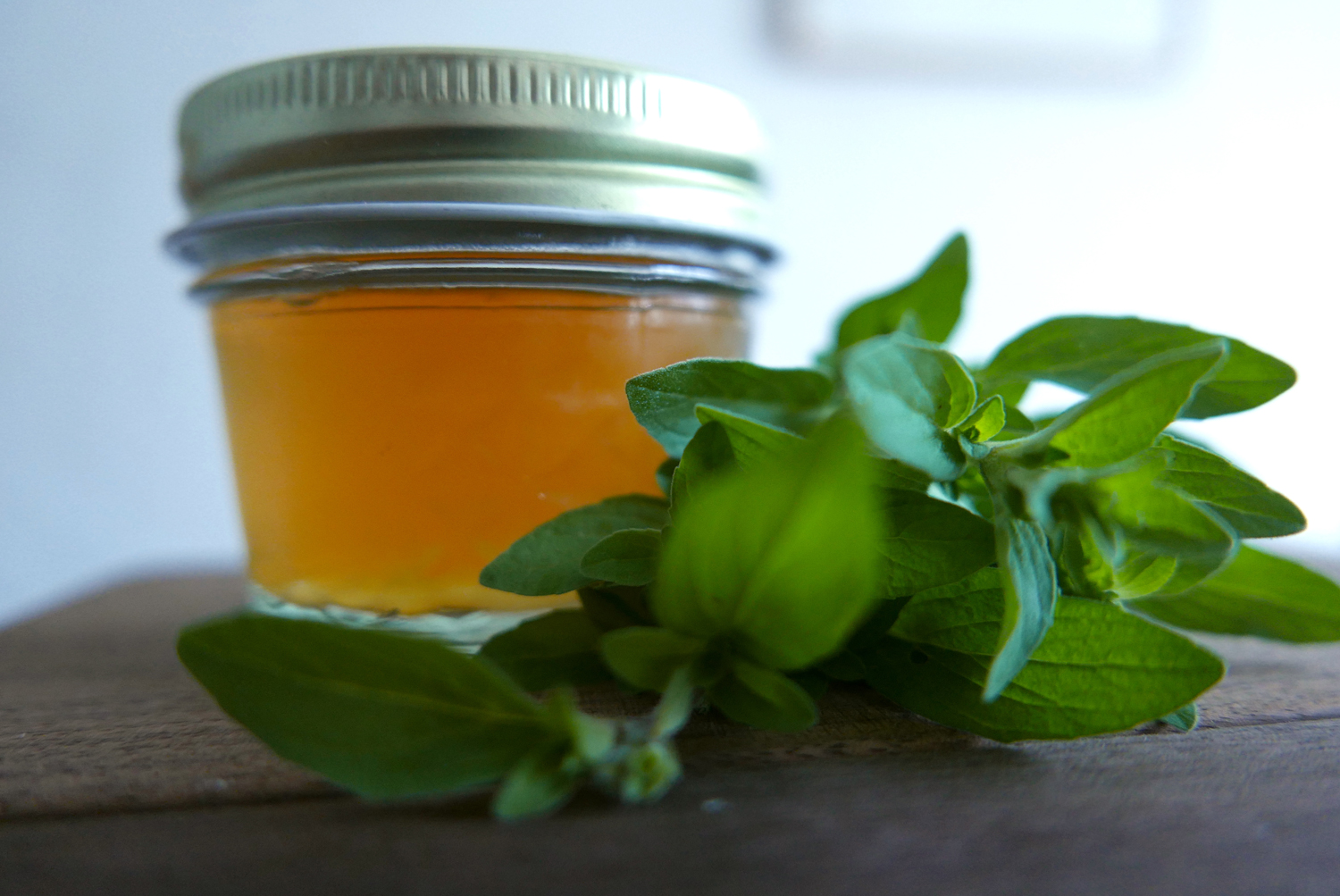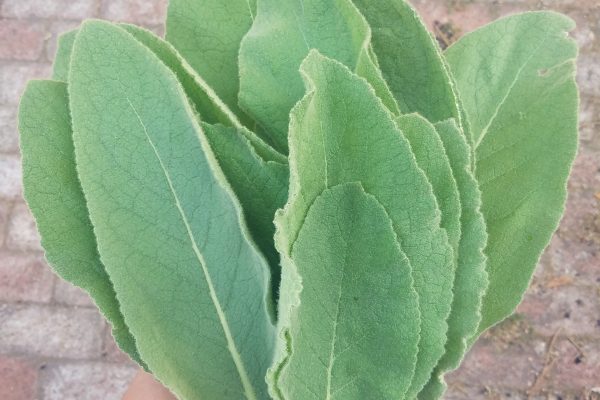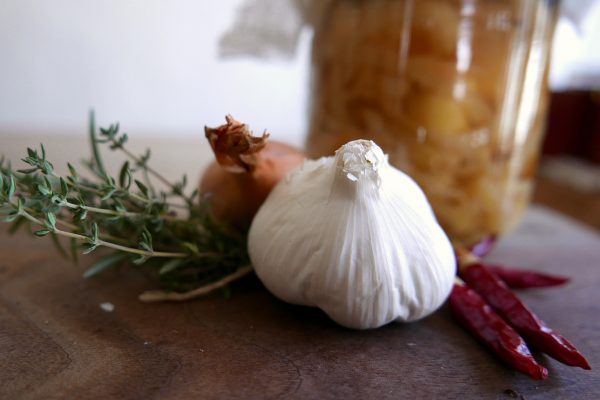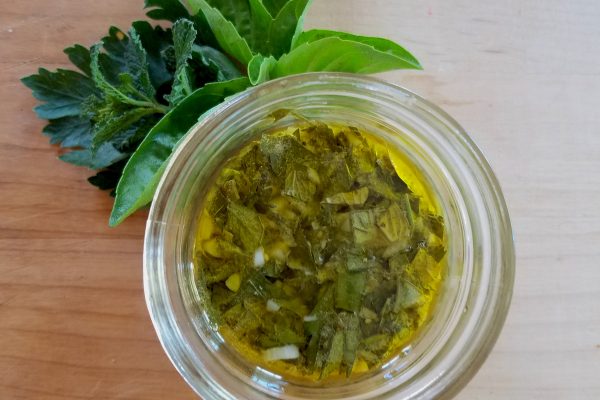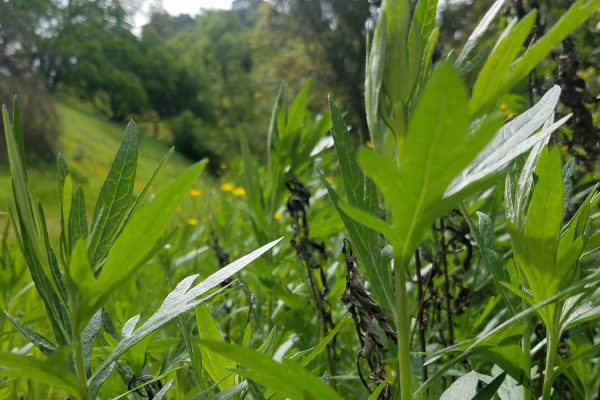By ANNA MARIE BEAUCHEMIN
Special to the Gazette
Spring has sprung and with it returns my monthly column featuring local, seasonal herbal information, recipes, and musings. To kick off the season I’m starting with one of my favorite springtime recipes – herbal infused vinegar. During this brief, lush, green time in the East Bay, medicinal and culinary herbs abound. Perennial plants are waking from their slumber pushing out fresh growth and potent plant medicine.
Why Herbal Vinegar
Herbal vinegar is an easy and delicious way to extract the medicinal properties out of many springtime plants. From culinary classics like oregano and thyme to seasonal medicinals like nettles, cleavers, and chickweed, the garden is ripe with herbaceous beauties that can easily be made into kitchen medicinals.
Many of the fresh spring greens available this time of year are packed full of nutrients and do not keep particularly well as dried herbs. These nutrient-dense plants are often easily extracted in vinegar making the recipe featured below an excellent way to preserve the bounty of spring for use later in the year.
When selecting which herbs to make my seasonal vinegar with, I always go for something that is growing abundantly in my yard or available at my local farmers market. If you’re collecting herbs such as cleavers (Galium aparine), chickweed (Stellaria media), or Nettle (Urtica dioica) from your yard make sure to be 100% certain on the identification of the plant.
How To Use Herbal Vinegar
Spring vinegar makes for a lovely addition to salad dressings and marinades and can be used pretty much interchangeably with apple cider vinegar for any culinary purpose. Keep in mind that your herbal vinegar will likely have an “herby” flavor – so you may want to account for this in your culinary flavor profile.
Ingredients
1 16-oz glass mason jar (with reusable plastic lid)
8 to16-oz high-quality apple cider vinegar (such as Braggs)
¼ to ½ cup seasonal medicinal herbs (such as cleavers, chickweed, nettle, oregano, or thyme)
Screens or cookie sheets for wilting herbs
Directions
Pick the best-looking patch of springtime medicinals available to you and collect roughly 1-2 cups of the fresh plant. Rinse the herbs well in your kitchen sink and make sure to sift through them and remove any pests, bugs, or unwanted plant material. Pat the herbs dry and lay them out on large drying screens (cookie sheets will do as well if you don’t have screens) for drying. Making vinegar with dried plant material is always best, so if you have a good drying setup, I would dry the plants for a few days to a week, and use immediately to make your vinegar. If you don’t have a great drying setup and are concerned with the plants getting moldy, you can wilt them for a couple of days and then use them. The more water that is in your plants, the more water will go into you vinegar, diluting the liquid and reducing the vinegar’s preservation qualities. If the plants mold during the drying process, toss them into your compost bin and try again. You don’t want to make vinegar with moldy plants.
Once you have your dried (or semi-dried) plant material, add to the mason jar filling 1/4 to half full. Fully cover the plant material with apple cider vinegar and seal the jar with a plastic lid (metal lids will rust due to the vinegar, but this can be avoided by placing a plastic barrier between the lid and the jar) and let sit in the fridge for 1-2 weeks, shaking often. After the vinegar has infused, strain out the plant material and store the herb-infused vinegar in the fridge and enjoy! The infusion should last for 3-6 months.
A Note on Collecting Medicinal Plants
It should be noted that as a former biologist, I never promote wild-crafting for your medicinal plant needs. Natural populations of plants are vital to the ecosystems that they are a part of and should be left alone for mother nature to care for. Many of the plants mentioned can be easily grown (and probably already are growing) in your own yard, can be purchased from a local herb supplier, and sometimes even be found at your local farmer’s market.
Want To Learn More? East Bay Herbal’s next FREE Community Workshop will be on April 30th from 6:30-7:30 pm at the Martinez Library. We will be talking about Herbs to help support respiratory health – hope to see you there!
Note: The information presented in this article is for educational purposes only, and is not medical advice. For more information about local, seasonal, herbal remedies and regional botanical information, check back on the first Sunday of every month for the Hometown Herbalist column.
Anna Marie Beauchemin is a trained clinical herbalist and biologist. Born and raised in Martinez, California, she is passionate about sharing her craft with her community and helping people to find balance and wellness in their lives. For more information visit her website at eastbayherbals.com or follow her on Facebook and Instagram @eastbayherbals.
Photo Caption:
Apple Cider Vinegar + Oregano – Photo by Anna Beauchemin

